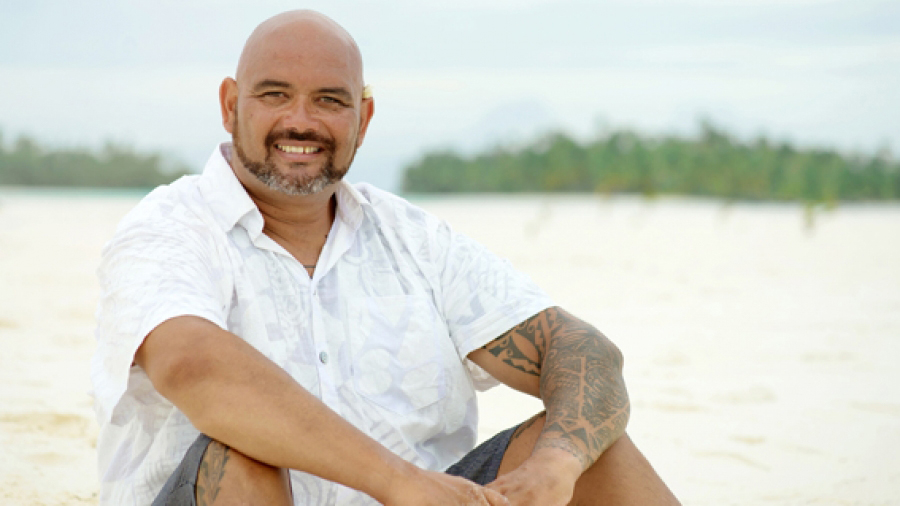Thomas Wynne: Protecting our digital taro patch
Saturday 11 May 2024 | Written by Thomas Tarurongo Wynne | Published in Editorials, Opinion

Columnist Thomas Tarurongo Wynne. Photo: CI NEWS/16040843
Our digital taro patches, our everyday phones and devices, which we use to share photos, communicate with each other, and establish an online presence, are like sitting in the window of CITC in Avarua or a shop, writes Thomas Tarurongo Wynne.
We live our lives seemingly oblivious to how many people walk by and can peer into our lives – some whom we give permission to do so and some whom we do not.
Protecting our digital taro patch, our data, identity, and online presence has become increasingly challenging. Time and again, many of us have noticed that social media accounts are being hacked and compromised, with requests for friends, money, and information flowing out from our digital walls of protection into the hands of those who would exploit it, use it, and sell it to the highest bidder – let alone funeral requests and online funeral video requests that are scams.
We probably secure our pigs and vegetables better than we do our digital profiles, and even our produce is susceptible to theft by would-be robbers. It’s not uncommon to see our Metua and Vouvou’s accounts promoting everything from cryptocurrency trading to money scams. These accounts often require our information to click on seemingly legitimate links or, as was reported just last month, to fall victim to sophisticated scams enticing job seekers in the Cook Islands with an upfront fee.
Following some investigation, would-be workers discovered that there was no Crown Water Resort in the Cook Islands. However, before this was exposed, some had already been duped by these digital fraudsters. Many of us have likely received suspicious Facebook messages asking if we’ve seen the account with our name on it, promising money upon clicking the provided link or adding the profile claiming to be the CEO from companies like Samsung.
These fraudulent Samsung Facebook accounts, using names like Cathy Honest, Lisa Honest, Paul Truth, or John Honest, often converse in Maori, indicating a targeted approach towards our community. Unfortunately, this tactic seems to be more successful than not.
In November 2022, ANZ warned of a scam using their logo, promising a link to receive $4000, and in February of this year, a scam targeting Cook Islands accommodations, with scammers posing as guests, was brought to the public’s attention. In March of this year, another online scam was uncovered, claiming people could obtain a Cook Islands licence without taking the test, drawing attention from authorities in the Cook Islands.
While financial institutions in our country have worked diligently to regulate themselves and maintain accreditation and integrity that meet global standards, the persistent efforts of scammers and digital thieves continue to prey on our community.
So, what can we do about this digital wave of theft and scamming and better educate and protect ourselves?
Several local initiatives have been launched to address these concerns. The Prime Minister’s Office introduced “Stop the Scammers” (Kukiwise) in Maori and English on YouTube a few years ago, featuring informative videos on digital safety. The Financial Supervisory Commission provided tips for recognising and avoiding scamming emails, while banks like ANZ and BSP offer information on their websites to warn customers about potential scams and how to identify them.
However, the question remains: are these efforts sufficient, and are we doing enough to educate and protect our community from online thieves and scammers? Moreover, as our country considers entering the realm of harvesting tainted cryptocurrency, utilising hackers to seize these currencies from foreign accounts, what risks does this pose for our local population, and how can we safeguard against potential retaliatory attacks from crypto criminals?
These are critical questions to ask, as I simply asked Google finding at least 10 articles from crypto organisations, news outlets and chatrooms, discussing the Cook Islands legislation, how it was put together, who was involved offshore and watching intently as this legislation made its way through our Parliament and select committee.
If we are going to become the legal jurisdiction to hack and harvest tainted crypto currency, then let us ensure that we have robust digital infrastructure and walls in place to protect our local community, local infrastructure and local people from any targeted attacks. It would seem so far, our digital taro patch has been raided, and this is a battle we are not always winning.
https://www.pmoffice.gov.ck/our-work/ict/cyber-awareness/
https://www.anz.com/cookislands/en/personal/ways-bank/internet-banking/protect-banking/
https://www.bsp.co.ck/security-messages/bank-safely-online/














































